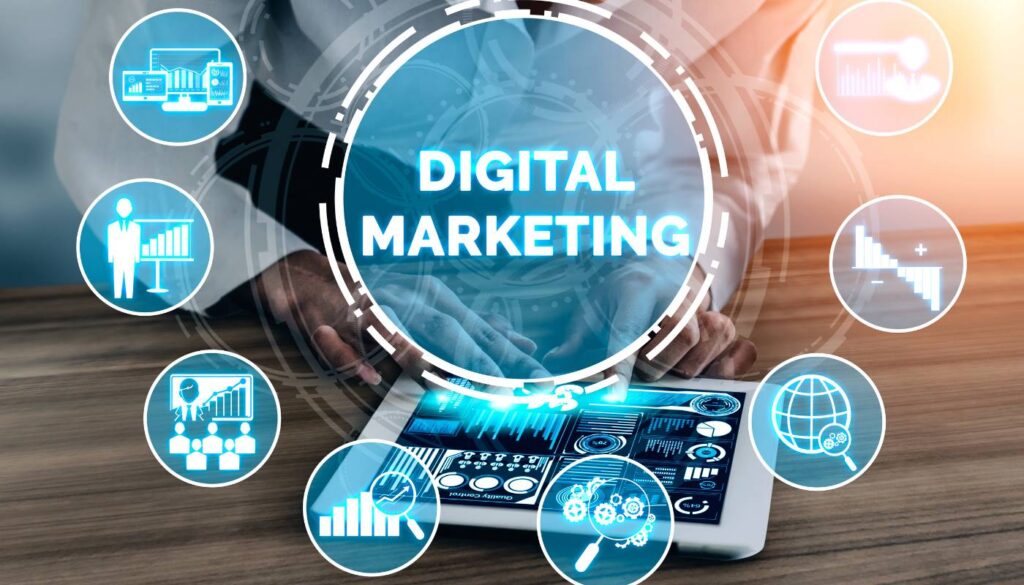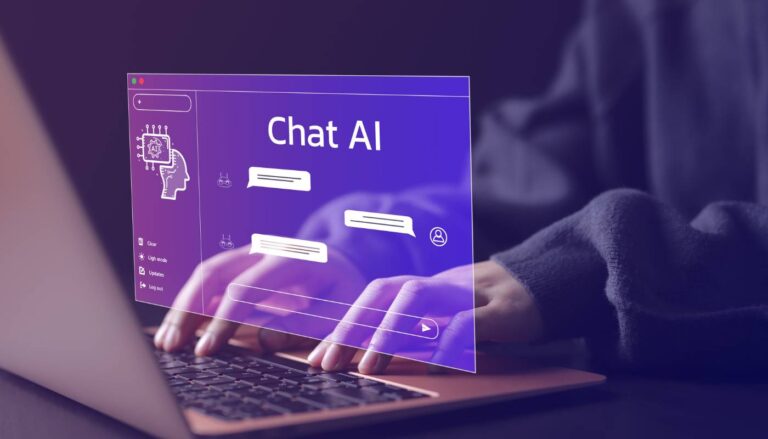AI Marketing Tools
AI and machine learning have become popular in marketing in the recent past due to their ability to offer insights and analyze data alongside processing repetitive tasks. AI marketing tools are defined as applications that use AI and machine learning to enable marketers to work better. In this article, we will uncover the most widely used AI marketing tools available in the market and how they are shaping marketing.
Introducing AI Marketing Tools
AI tools in marketing refer to the use of artificial intelligence and machine learning techniques to analyze data, gain insights, anticipate consumers’ behavior, automate processes, and improve campaigns. Compared to conventional marketing software, AI marketing tools have the ability to handle large datasets, update their own algorithms and adapt to inputs from new data without requiring further coding.
AI marketing tools are designed to complement human marketers by performing tedious number-crunching operations and delivering meaningful qualitative data, freeing up marketers to work on high-level ideas. They assist marketers in decision-making regarding the choice of audience, content, budgets, and ad campaign optimization for higher ROI.
Types of AI Marketing Tools
There are several categories of AI marketing tools available today:There are several categories of AI marketing tools available today:
1. Marketing measurement – Use consumer data to draw insights about consumer behavior, marketing campaigns, attribution, predictions, etc. Some of the tools include Datorama, Pattern89, and Funnel.io.
2. Automatic lead scoring – Suggest topics and content that are likely to convert and generate high performance. Some of them are Persado and Orchestrated.ai.
3. Dynamic creative optimisation – It involves testing and the optimisation of the ad’s creative aspects, including images, copy, layout, calls to action, etc. These are Phrasee and Adobe Sensei.
4. Smart and conversational chatbots – The natural language processing bots for lead generation, answering customer questions, or selling to the cart abandoners. Some of examples are Drift and Ada.
5. Marketing data management platforms – Collect data from multiple sources, identify outliers, and automate multichannel marketing campaigns. Some of them include Treasure Data and mParticle.
6. Real time marketing – Adapt webpage content, products, messages, and offers to each visitor based on data collected from their activity on your website. Some examples include Optimizely and Evergage.
Now let’s explore some of the value AI marketing tools provide in more detail:Now let’s explore some of the value AI marketing tools provide in more detail:
Consumer Insights
One of the most effective use cases of AI in marketing is the use of data to get to know the customers or the target audiences better. It is crucial to mention that AI tools are capable of analyzing millions of data from such sources as website analytics, CRM databases, and email systems, etc., to reveal trends and patterns that could hardly be distinguished by a human.
For instance, AI can recommend the specific audience segments based on customers’ interests and characteristics. It can also segment customers in terms of value to the business, including the estimated customer lifetime and likelihood of defection. Such detailed understanding enables marketers to better focus their message and tailor touchpoints.
AI tools also use machine learning models to estimate the probability of future events such as, will a lead convert or what the expected value of an order will be. It gets better with time as more data feeds into the model to get a better understanding of the target audience for a particular product and sales forecast.
Content Creation & Optimization
It is virtually impossible to generate enough quality and effectiveness of content pieces at scale to address contemporary needs for any marketing team. This is where AI marketing tools come in handy because they either create content themselves or enhance the content created by humans to meet the business objectives.
AI can use the analyzed data on the trending topics and frequent consumer search terms, as well as historically popular and well-performing pieces of content to suggest potential new topics and articles that would help the organization achieve its goals. Script generators can then help in writing first drafts.
When it comes to applying AI to existing copy and creatives, it can perform A/B testing on images, headlines, body copy, calls to actions, layouts, colors, and much more. Using trial and error, which is virtually limitless, the AI tools identify the specific configuration that yields the highest number of conversions or engagement.
Some tests that would require months or years of manual testing can be performed in days or weeks with the help of AI automation. It allows for the process to be optimized constantly while eradicating the element of guessing.
Intelligent Chatbots
Another application of AI that we are witnessing is in conversational marketing and sales interactions. Chatbots now use natural language processing to interpret text or voice communications. They can infer a prospect’s interest, identify the most useful information and answer a query in a normal human manner. Some can even imitate the way this individual speaks in order to enhance interactions.
Modern chatbots act as the extended sales representative involved in qualifying the inbound leads, answering frequently asked questions, suggesting products, addressing the cart abandoners, setting up meetings, and the onboarding of new customers. They allow the businesses to be ‘always on’ yet at a considerably cheaper price than human employees.
The strength of AI chatbots is that they can understand questions, provide appropriate information, and even decipher context in a conversation as it progresses. This builds more positive, constructive conversations at scale that moves prospects to action.
Ad Campaign Management
In charge of paid marketing channels such as PPC and social ads, it becomes quite challenging to do constant ad, landing page, bid, targeting parameters, and much more on ever-growing platforms. Add to this the fact of having multiple accounts, clients, or campaigns to manage.
Fortunately this is a great match for AI since it is capable of working with vast quantities of advertising data, identifying trends, and adjusting campaigns for KPIs on its own. Tools can help to setup campaigns according to the established standards for specific types of businesses at the beginning of the campaigns. Instead, they adjust parameters such as bids, audiences, creatives, and landing pages – over 150 000 combinations per month – to decrease the cost per click and acquisition and increase conversion rates.
In other words, they rely on the ability of programmatic optimization based on statistical probability and machine learning. This is helpful for marketers to expand the campaign while at the same time reducing the workload of the mundane testing and analysis. Thus, with the help of AI, paid channels can generate a positive ROI more rapidly and consistently.
Cross-Channel Orchestration
As consumers interact through such channels as social networks, e-mail, Web, mobile applications, banners, offline events, etc., they want a seamless, relevant experience. This means that the marketers have to link the insights and orchestrate campaigns across the different teams and technology stacks.
AI marketing tools collate data from all marketing platforms and customer interface points to build a single, integrated view of each consumer. Multi-channel algorithms then dissect the compiled information to determine the coordination patterns that will establish the appropriate series of communications and touch points that match the progression of the customer’s journeys.
AI-driven personalization across channels enables the delivery of contextually appropriate brand experiences at the individual customer level irrespective of the channel used. This increases engagement, conversion, and customers’ lifetime value. It sets marketers up to better understand the downstream performance consequences of campaigns at each touchpoint for optimization.
Conclusion
Due to the overwhelming amounts of data and customer touchpoints, marketing has become a data-driven, automated process. AI marketing tools satisfy this need by applying machine learning to drive valuable consumer insights, content creation and testing, sales chatbots, sophisticated advertising campaigns, and omnichannel experience management.
Marketing operations that were once deemed unachievable a few years ago can now be achieved with AI automation for marketing ROI. AI marketing tools do not seek to eliminate human jobs but instead seek to handle all the repetitive and quantitative work that marketers spend most of their time on. This enables individuals to shift time towards business strategy, creative direction, customer relations, and interpreting the insights for innovation.
There is more on the way, as AI is poised to redefine the marketing function in the next decade with additional applications. Companies that adopt AI tools provide their marketing departments with competitive advantages in terms of efficiency, effectiveness, and intelligence when it comes to growing data challenges. The future is bright for humans to live in symbiosis with machines!



![How to Write a Business Plan for Startups [2025 Guide] | The Business Vision Magazine](https://thebusinessvisionmagazine.com/wp-content/uploads/2025/10/Untitled-design-768x384.png)


